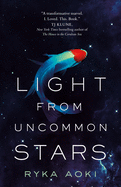The final day of the ninth annual Children's Institute began with the closing keynote "Music and the Stories that Make Movement." In this session, moderated by Tami Charles (Muted, Scholastic Press), authors Hanif Abdurraqib (A Little Devil in America, Random House), Tiffany D. Jackson (White Smoke, Katherine Tegen Books) and Jason Reynolds (Stuntboy, in the Meantime, Caitlyn Dlouhy/Atheneum) discussed "the intersection of music and books, representation, and the powerful impact on a young Black person when their experiences and belief system are mirrored by the words of Black artists." Cliff Helm, "the sole children's bookseller" at Left Bank Books in St. Louis, Mo., introduced the authors, all of whom showed up with energy and passion and proceeded to display immense musical and literary knowledge.
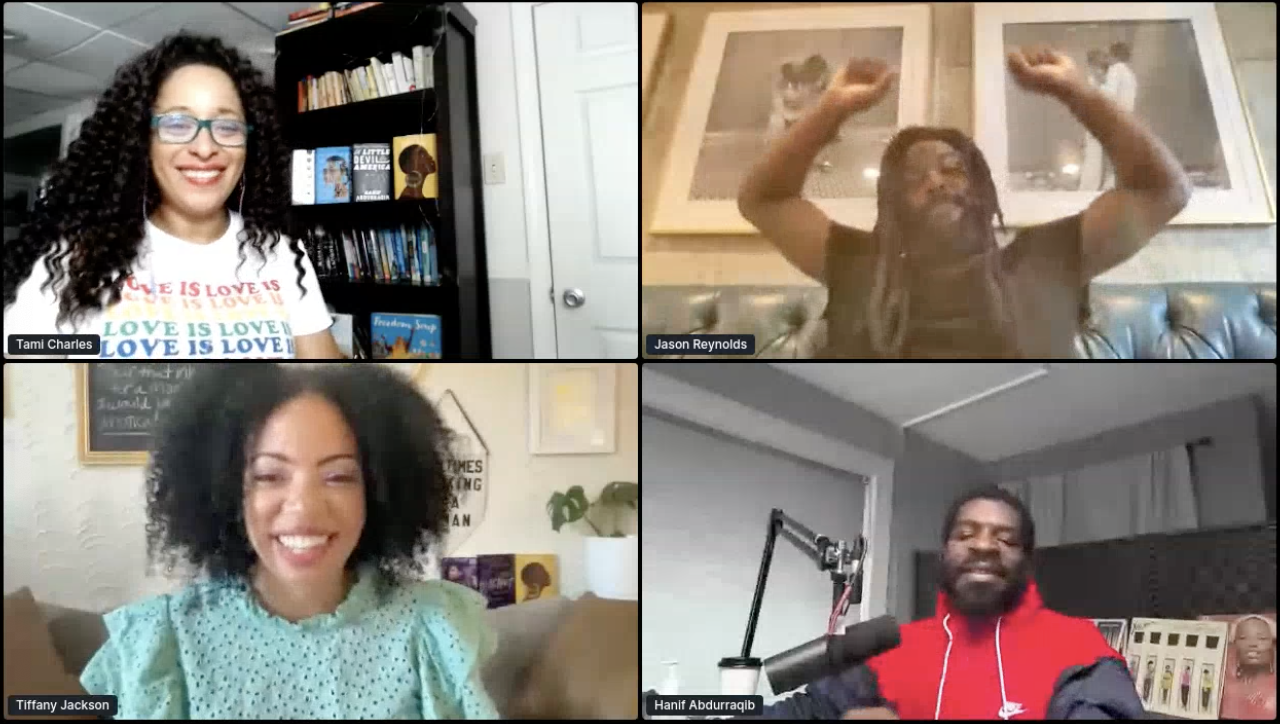 |
| Clockwise from top left: Tami Charles, Jason Reynolds, Hanif Abdurraqib, Tiffany Jackson |
"If this was in person--" Charles began, "--it would be fire," Jackson finished. And while that is certainly true, the authors' enthusiasm was not dimmed by the virtual format. Charles's first question was, "When did you fall in love with music?" For Jackson, it was Whitney Houston. "I remember specifically playing in the living room with the record player on. I stopped to listen to 'Greatest Love of All.' " Reynolds said it was a tie: "Listening to The Temptation's 'Papa Was a Rollin' Stone' with my mother... and then listening to Bruce Hornsby's 'The Way It Is' with my father." Abdurraqib spoke more to the idea that music is supposed to "linger": "Nina Simone's live 1964 record had a version of 'Pirate Jenny'.... Nina's greatest skill was transforming songs that were maybe not written with our people in mind and making them ours."
The open-ended statement "Music is..." elicited a range of responses from the three. "Required," said Reynolds. "Your love letter, your love language," replied Jackson. And "a tool for lineage building and lineage making," Abdurraqib answered. Reynolds also told a touching story about his father, who died recently: about two days before he "transitioned," music--blues, specifically--woke him up and gave the family two lucid and joyful hours with him.
The panelists were stumped briefly when Charles asked them, "Which song lyrics embody who you are as an artist?" To give them time to think, she said that for her, "One of my favorite singers is India Arie." The lyrics "Been around the whole world, still ain't seen nothin like my neighborhood" make her feel good. "But I like the message to stop, take a moment and appreciate the tiniest things that make you feel rich." Abdurraqib said he had recently been listening to Stevie Wonder's isolated drum tracks. "There's ways to write a song like a songwriter," he said, "and there's ways to write a song like an architect. 'Knocks Me Off My Feet' has this thing at the end that moves toward ecstasy... I think that defines my writing." Reynolds said that Tracy Chapman's "Talkin' Bout a Revolution" hits home for him: "Talking about a revolution? It sounds like a whisper." "I think about what I'm attempting to do in my work," Reynolds said, "the revolution is the portrayal of these people. It sounds like a whisper but it's hopefully changing the way a kid might exist in the world." "Tracy Chapman is a writer," said Abdurraqib, "the second greatest writer [after Toni Morrison] to ever come out of Ohio."
When it came to the intersection of music, books and activism, Jackson seemingly answered for everyone, "They kind of feel one and the same." Charles, Jackson and Abdurraqib all spoke about "RESPECT" and "the good ancestor" (Abdurraqib) Aretha Franklin. "I don't know if any song has made me feel like I can go and do something," Reynolds said, "like 'Young, Gifted, and Black.' That song makes me feel like a giant." But the other song that speaks to activism for Reynolds is Otis Redding's "(Sittin' On) The Dock of the Bay." "Even though it can be seen as a depressive song, to me it often feels like a song of rest. When have we ever heard a song where a Black person says, 'I'm wasting time?' "
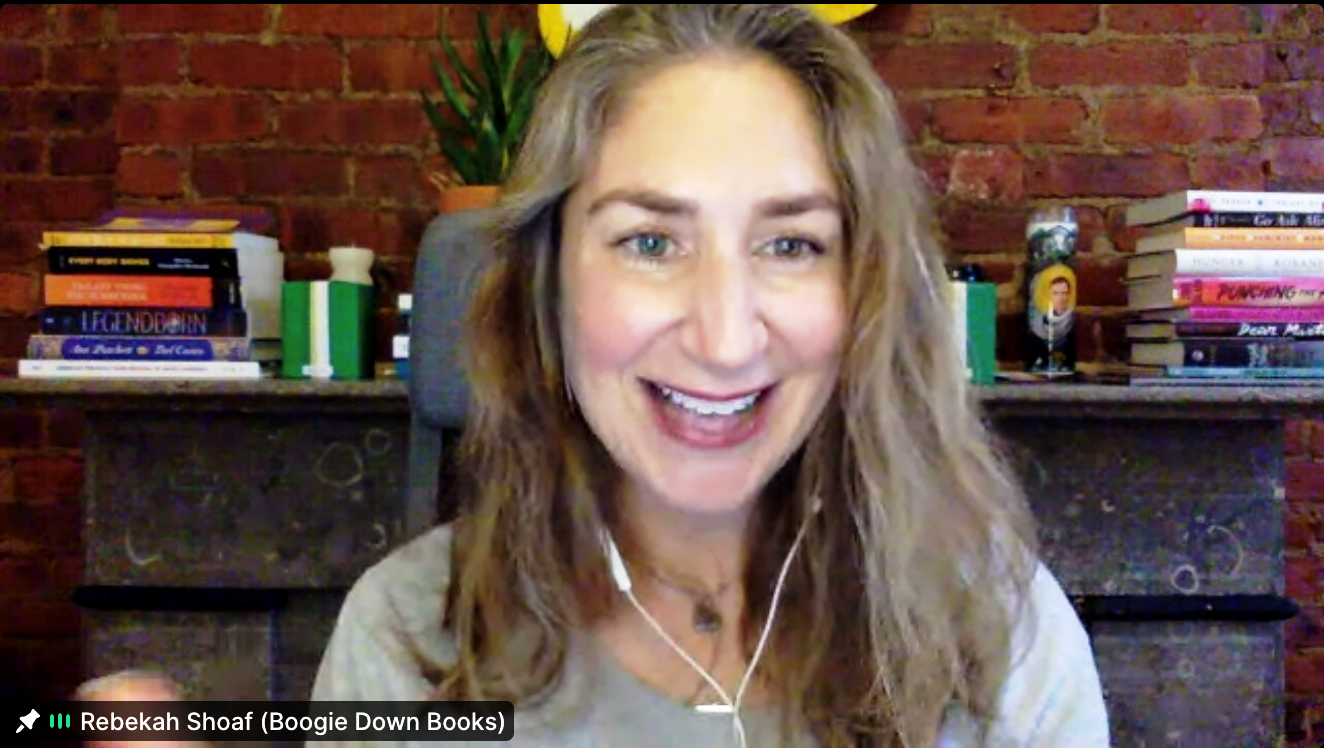 |
| Rebekah Shoaf |
Four roundtable sessions were offered in the afternoon, including "Industry & the Innovation of Nontraditional Stores." Rebekah Shoaf of Boogie Down Books, Bookstore Without Walls in the Bronx, N.Y., and Zsamé Morgan, owner of Babycake's Book Stack Bookmobile in St. Paul, Minn., moderated, giving the group plenty of time for questions and suggestions.
Morgan and Shoaf began by talking about partnerships--"Think expansively about what partnership can mean," Shoaf suggested. Morgan has connected with the community by partnering with schools and other businesses that have events, and she is also a vendor for the state and the board of education. "We have strategically worked with all of those partners to bring the books to communities that need to see themselves on the shelves." Shoaf said that "not having our own space means that we are dependent on our partners for a physical space when we gather as a community." They partner with schools and "with a local nonprofit that supports young people incarcerated in New York City."
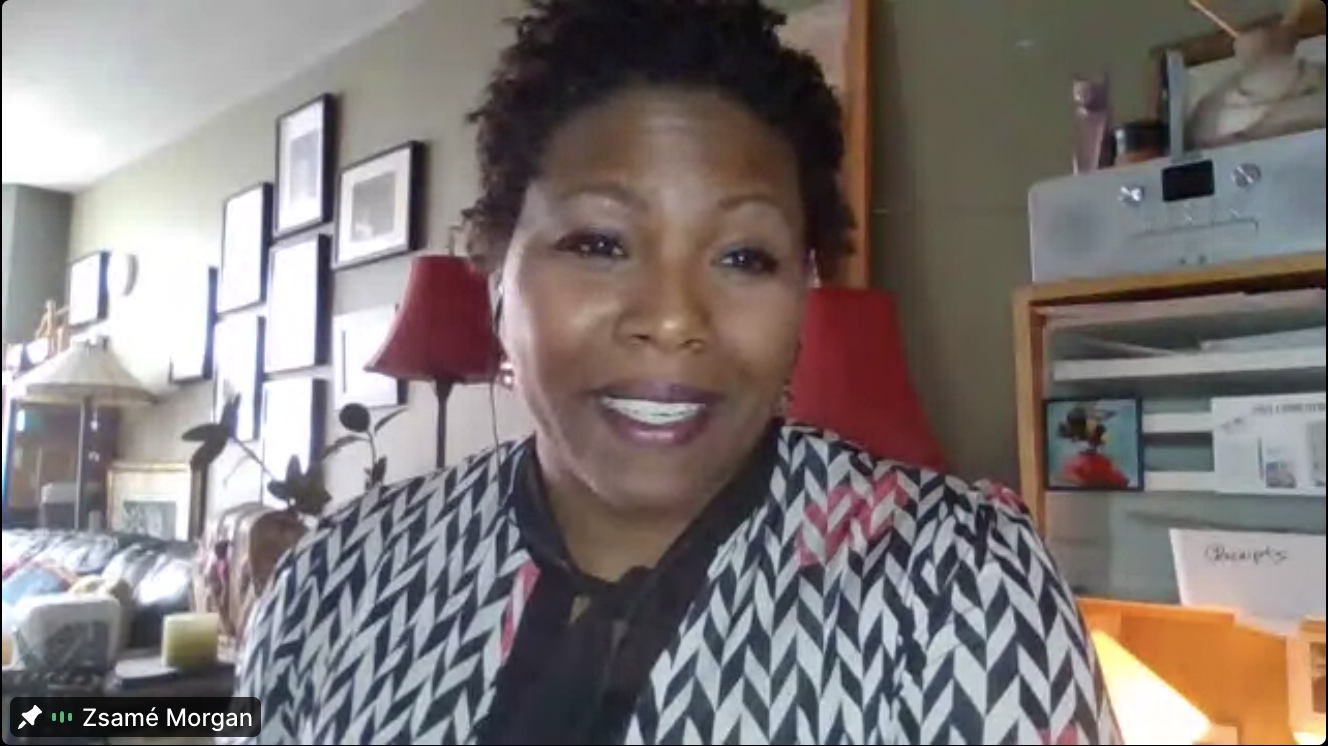 |
| Zsamé Morgan |
Many booksellers in the session brought up concerns and questions. All agreed that the pandemic has been very difficult for their business--a thing they have in common with bricks-and-mortar stores--but used the time to ask more specific questions. How to handle shipping for a store without an address? What about pick-up with no bricks-and-mortar location? What point-of-sale systems are the best?
Abby Rice of Foggy Pine Books in Boone, N.C., works part time at a co-working space and suggested that such spaces would let nontraditional stores have mailboxes and use their address. This could also be an excellent option for customers to pick up books. Other options include getting a P.O. box that allows stores to use the street address of the post office as their own street address, and makes it possible to get UPS and FedEx deliveries. Shipping-wise, many swore by Stamps.com and Pirate Ship for their mailing needs and both Kathy Burnette of Brain Lair Books in South Bend, Ind., and Lauren Nopenz Fairley of Curious Iguana in Frederick, Md., noted that an easy way to "weigh" the books is to use the weight listed on Ingram.
The booksellers gave each other a ton of options when it came to POS systems and suggested people check out the Facebook group Bookstores Using Square. There is also a Facebook group, Pop-Ups, Bookmobiles, & Other Non-Traditional Bookstores, for booksellers who would like to chat with their extended community. --Siân Gaetano, children's and YA editor, Shelf Awareness
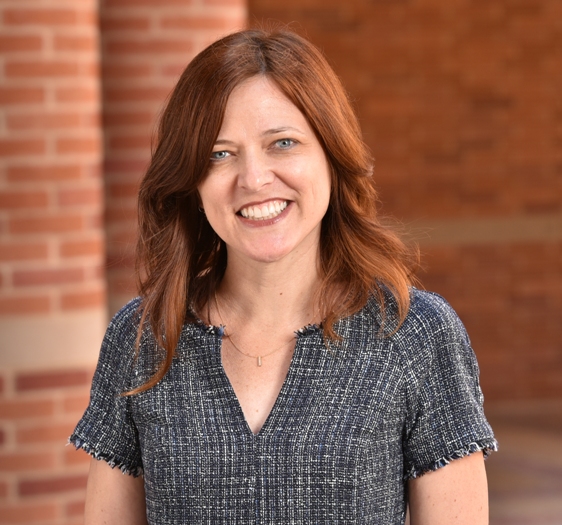















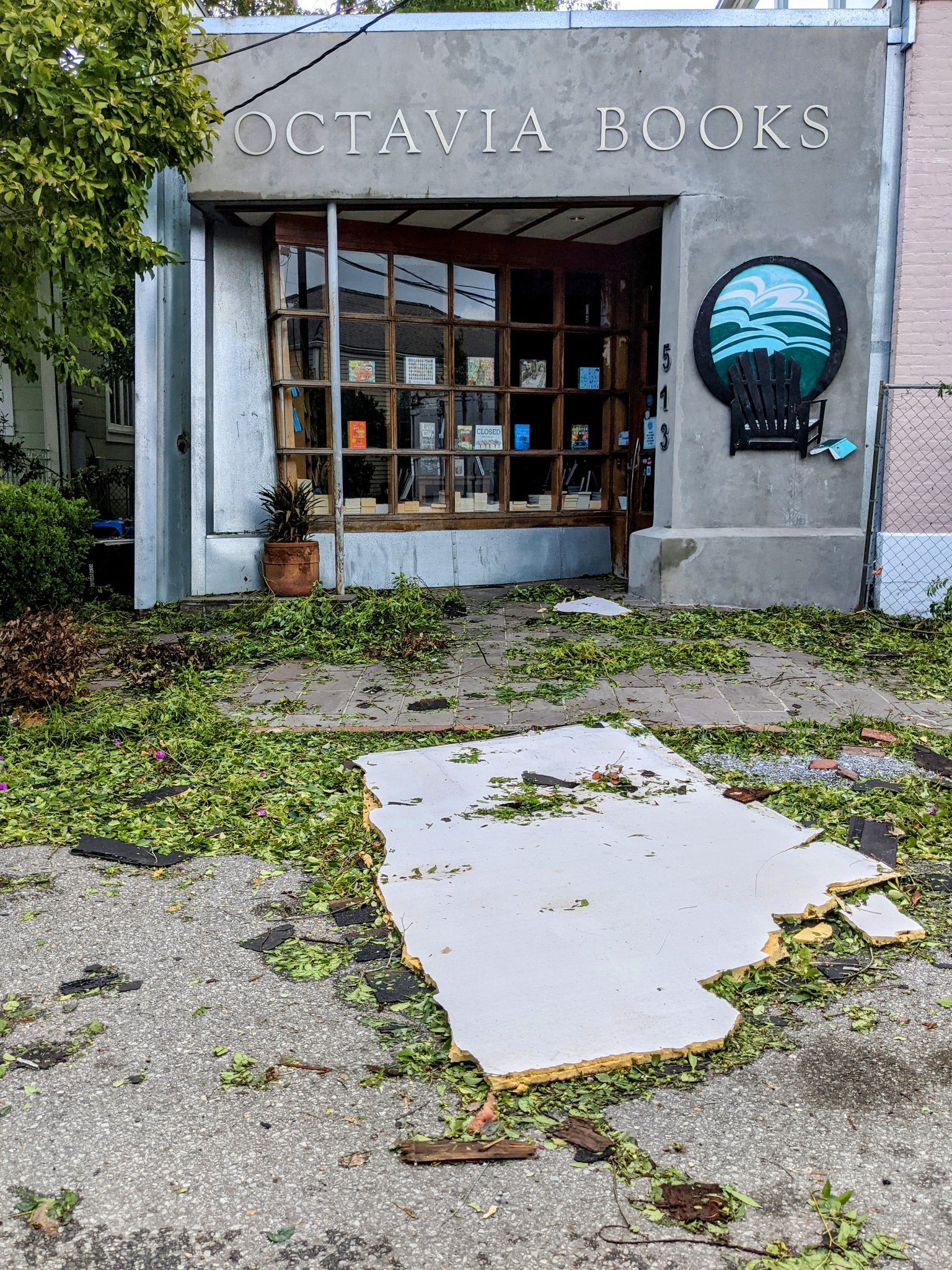

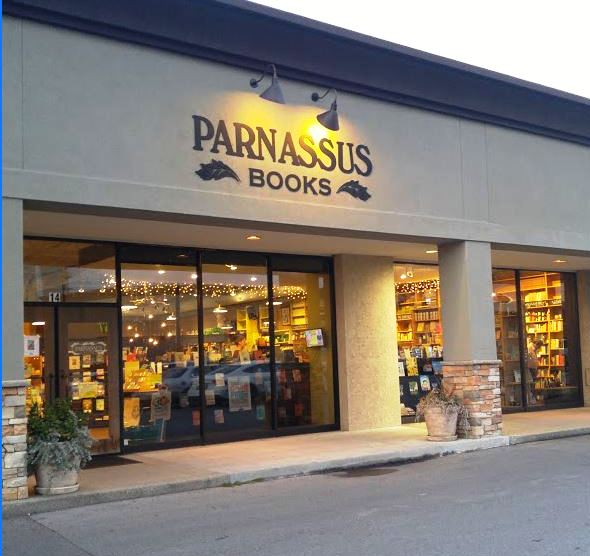
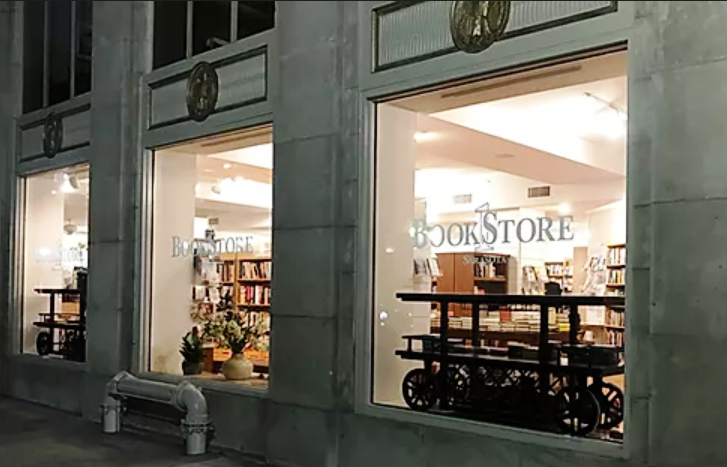 Georgia Court, owner of
Georgia Court, owner of 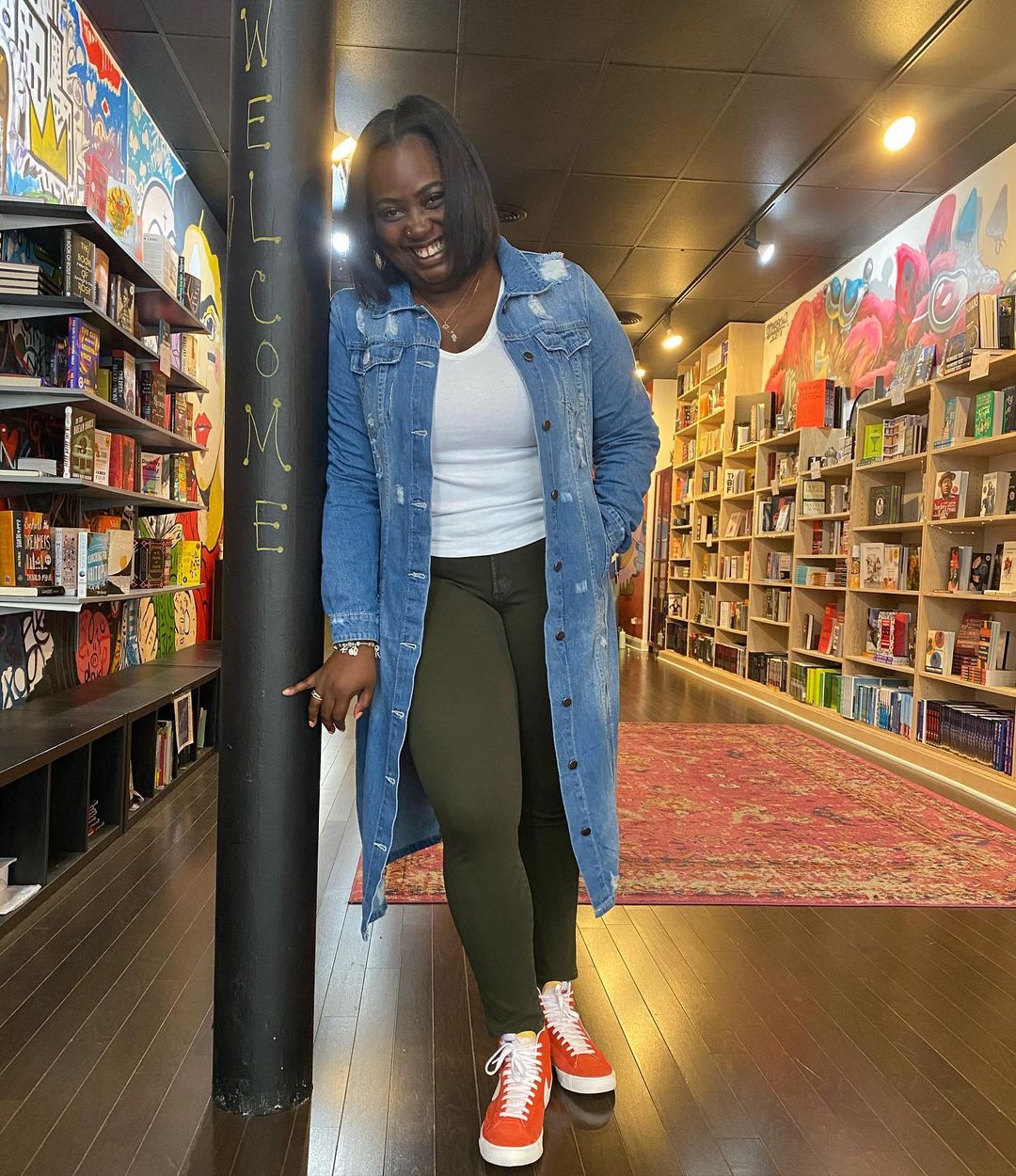
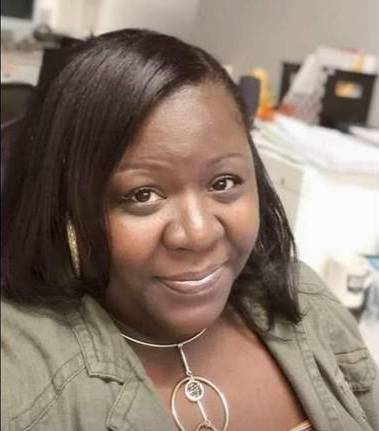
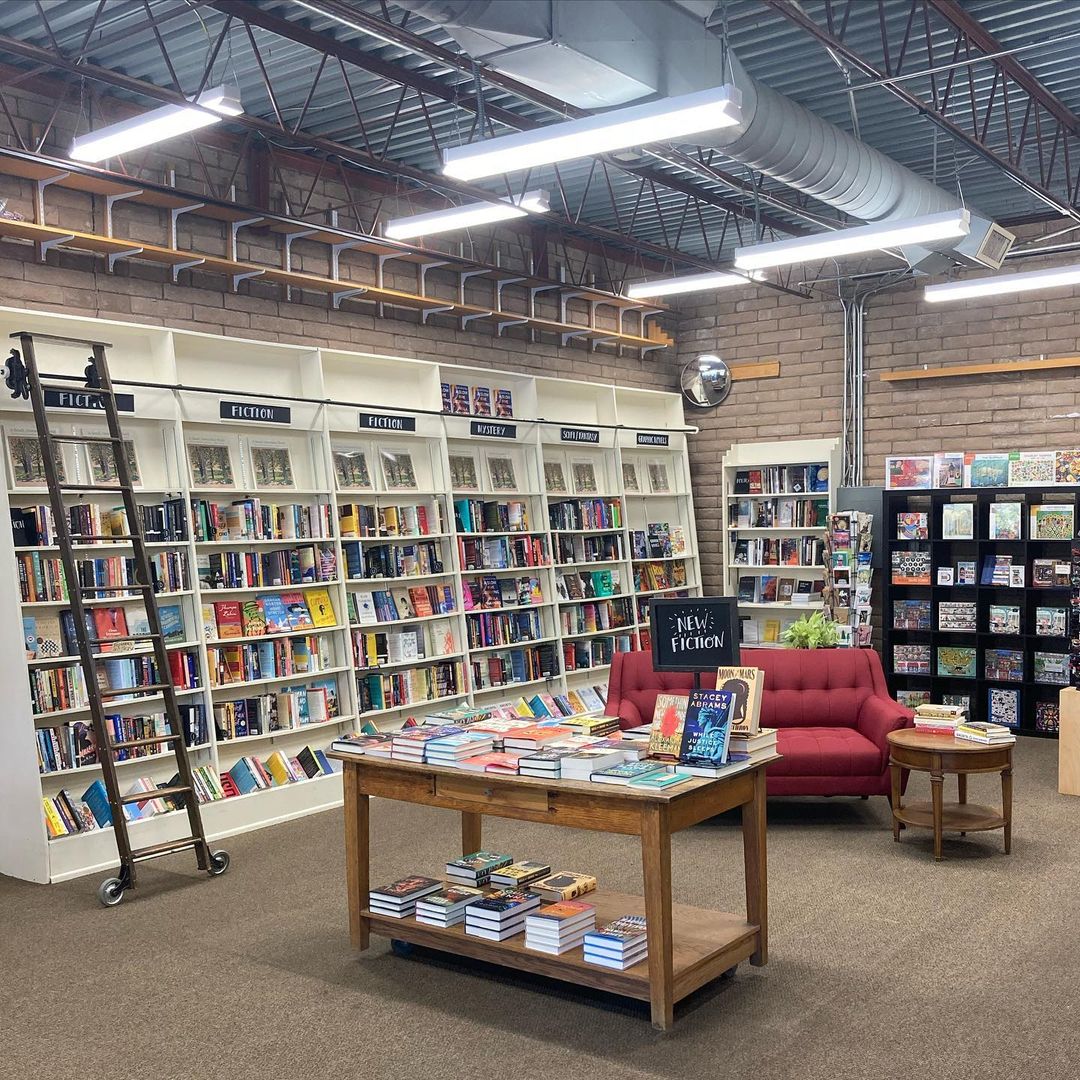
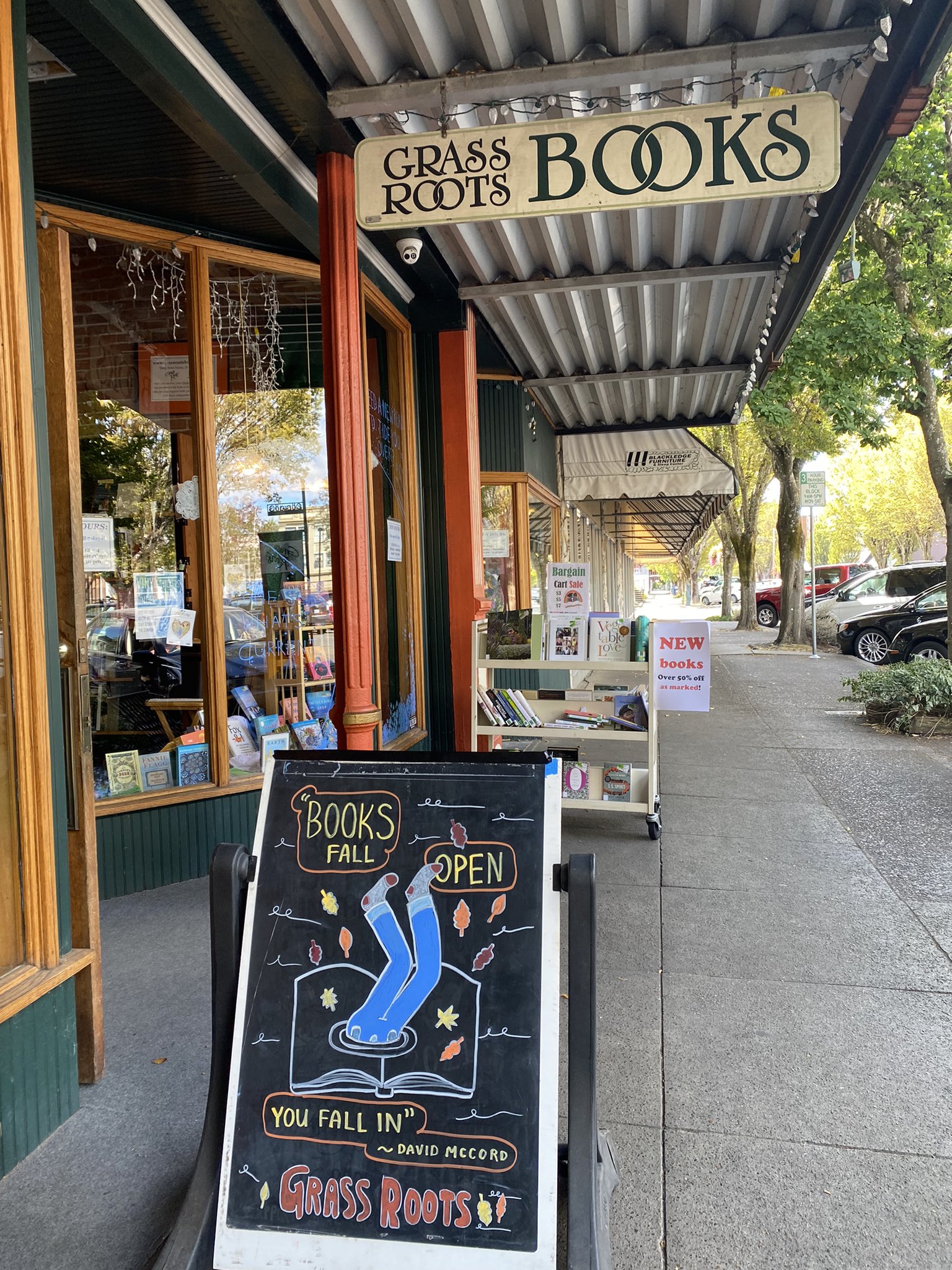 "
"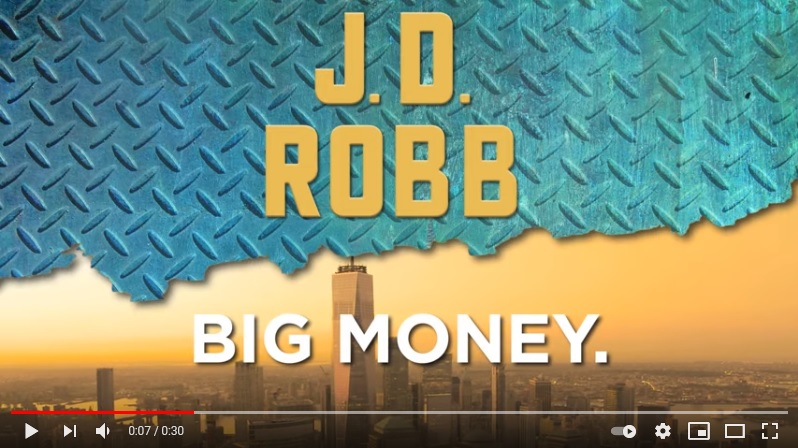 Forgotten in Death
Forgotten in Death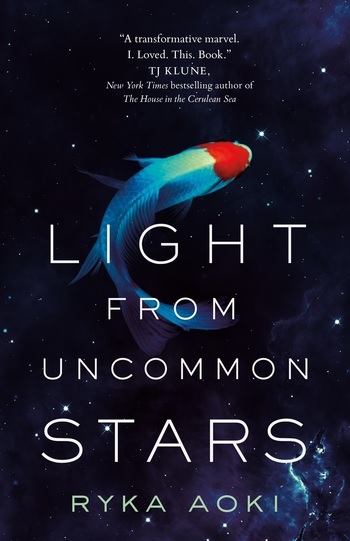 Intergalactic travel, Faustian bargains and the misunderstood music of Béla Bartók commingle in a delightfully offbeat celebration of life, the universe and the quest for the perfect donut from Ryka Aoki (He Mele a Hilo).
Intergalactic travel, Faustian bargains and the misunderstood music of Béla Bartók commingle in a delightfully offbeat celebration of life, the universe and the quest for the perfect donut from Ryka Aoki (He Mele a Hilo).